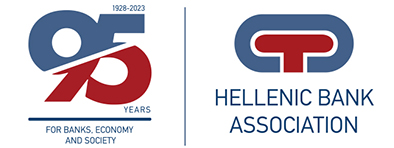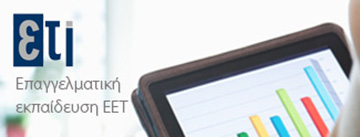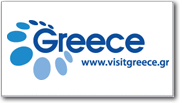Substantial and critical support of Greek banks towards businesses and households during 2020
With the allocation of funds of more than €20 billion, the adoption of measures to support households amounting to €45 billion as well as the financial support for development projects and state infrastructure, Greek banks have made a decisive contribution in 2020 and continue to contribute to the strengthening of the Greek economy
During 2020 the Greek society faced one of the biggest challenges of the last decades. In dealing with this unprecedented crisis, Greek banks have essentially supported thousands of households and businesses, shielding the Greek economy and cultivating the ground for its strong recovery.
Since the pandemic emerged in our country, HBA member-banks have proceeded rapidly and with determination in implementing actions under three (3) main objectives: a) support for households in order to mitigate the impact of the health crisis b) immediate provision of liquidity to companies to help them cope with the sharp decline of their revenues, focusing on the heavily affected key sectors of the economy and c) ensuring growth prospects of the Greek economy, by supporting critical projects and investments.
To achieve these objectives, banks have moved within five main axes, adapting their strategy and planning according to their customers’ needs, by making optimal use of all available and appropriate means and measures.
First axis - Direct, continuous and seamless financing of the Greek economy
In 2020, Greek banks financed the economy with funds that exceeded €20 billion, which is an amount that constitutes the highest annual financial flow for the last decade. In fact, for supporting the financial needs of the economy, banks were not limited to the use of available financial instruments by the Hellenic Development Bank (Entrepreneurship fund II-TEPIX and Loan guarantee facility program), but also took advantage of their own loan programs.
Banks financed 30.000 enterprises, mainly small and medium-sized, drawing for them €6.5 billion, from the two programs of the Hellenic Development Bank, thus achieved a record-return on capital absorption, which reached 95%.
Second axis – Instalments’ deferral for affected households and businesses
Greek banks proceeded rapidly and with simplified procedures to the extended deferral of loan instalments for Greek households and businesses. According to the available data, for the period January-November 2020, loan instalments for approx. 400.000 companies and individuals, totaling up to €30 billion were suspended, thus mitigating the economic shock caused by the health crisis. It is worth noting that these moratoria are on top of the loan arrangements (business, mortgage and consumer ) to which banks have proceeded lately, and which amount to € 15 billion. Namely, through arrangements or suspensions, the Greek banking system has facilitated borrowers for amounts totaling to €45 billion.
Third axis - State and society support through extensive Social Support programs
During the health crisis, banks contributed to the nationwide effort of supporting the National Health System, thus acknowledging the heroic efforts of the country's medical and nursing staff. At the same time, within the framework of their Corporate Social Responsibility programs, banks supported vulnerable social groups while continued and expanded important educational, environmental and cultural actions. The total amount provided by the four systemic banks for all said actions amounted to €13,5 million.
Greek banks stood by the society also through numerous campaigns, informing citizens about available service possibilities through bank networks other than branches (web and mobile banking, phone banking, ATMs network), aiming to avoid overcrowding in bank branches and protect public health as well as their own customers.
Banks’ contribution to the national effort also concerns the assumption of the cost for key State sectors. In particular, on top of the €13,5 million allocated to CSR actions, funds amounting to €8,5 million were provided for projects related to logistical infrastructure for the implementation of the new Development Law, the platform for the management of private and public debt, the modernization of information collection within the framework of international commitments of the country, the strengthening of the Hellenic Police and the preparation of important studies for improving the competitiveness of the Greek economy.
Fourth axis – Reduction of NPLs with the aim of freeing up funds to be channeled into the Greek economy
In the midst of the pandemic, Greek banks continued their efforts and achieved their targets for reducing non-performing loans, thus paving the way for release of capitals channeled into the economy, in order to ensure higher growth rates. Despite the difficult economic juncture, banks successfully made good use of the tools offered by the "Hercules" asset protection scheme to cope with NPLs, by attracting international investors and ensuring that there will be no burden for Greek taxpayers. For this reason, the Hellenic Bank Association would welcome the extension, expansion and improvement of the "Hercules" scheme , in order to continue rapidly the limiting of the NPLs ratio, which remains quite high in our country. Reducing non-performing loans will give banks the opportunity to increase their credit programs and their ability to finance the real economy.
Fifth axis – Preparing for the next day of the Greek economy
Greek banks, despite the unprecedented crisis of 2020, did not neglect their duty to prepare the ground for a more dynamic and extroverted Greek economy.
More specifically:
They financed major development and energy projects which place the country at the center of international economic interest, such as the redevelopment of the former Hellinikon airport in Athens, the significant Renewal Energy Sources investments for the country's de-lignite dependence, the mainland's energy connection with the islands and the development of the national road network.
In addition, banks are ready to cooperate with the public sector and take responsibility for assessing the sustainability of private sector’s business plans to be deposited under the Recovery Fund (RRF). With the Fund's loans amounting to €12.7 billion, more than twice as much private capital will be leveraged, resulting in some €30 billion in development projects to flow into the economy in the coming years. The mechanism qualified for this purpose by the European and national authorities gives financial institutions a central role.
In achieving all of the above, the contribution of employees in the banking sector is crucial. With a high sense of responsibility thousands of employees, in the midst of unprecedented pandemic conditions, worked for the safe and orderly service of citizens in all branches, processed in record time thousands of loan applications and achieved the uninterrupted availability of electronic networks, despite the unprecedented volumes of transactions carried out through them.
The efforts of the international scientific community to make sufficient and effective vaccines available come to support the struggle of the country's health personnel and create the conditions for overcoming the health crisis. In this new period for Greece, Greek banks will further intensify their efforts aiming at the rapid and strong recovery of the Greek economy and the prosperity of the Greek society.








